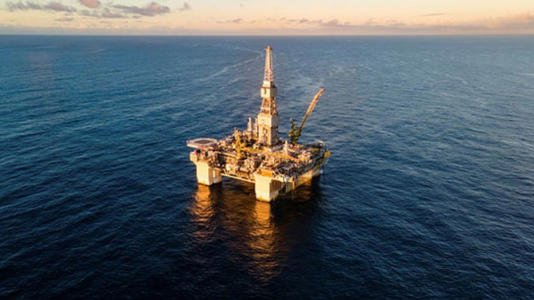
UK’s largest gas supplier warns output is at capacity | Oil rises for third day
Keep up to Date & Bypass the Big Tech Censorship
Get uncensored news and updates, subscribe to our daily FREE newsletter!
The boss of the UK’s largest gas supplier, Norway’s Equinor, has warned it will be difficult to further increase output after ramping up production last year to help fill the void in Europe’s stocks amid Russia’s war in Ukraine.
Anders Opedal said that natural gas demand will have to be lower across the continent to help compensate for the loss of Russian supplies while revealing annual profits that smashed the company’s previous record.
While the UK is a net exporter of gas during the warmer months of the year, the country typically relies on Norway for 25% of its annual demand due to a lack of storage capacity.
| Recommended Books [ see all ] | ||||
|---|---|---|---|---|
 |  |  |  |
 |
Equinor, which was formerly known as Statoil and is majority-owned by the Norwegian state, ramped up production by 8% in the wake of the invasion of Ukraine when Russia cut gas flows to Europe in retaliation for Western sanctions.
Its efforts – coupled with energy-saving measures continent-wide – have helped contribute to the lights remaining on during the winter so far.
Challenges over the past few months have included a slow return to output at many French nuclear plants.
The UK has relied on gas flows from Norway during cold snaps when the wind has failed to blow, recently using the Demand Flexibility Service to ease pressure during peak hours.
Recent industry figures have shown that gas has accounted for more than 40% of power output over the past week.
The chief executive’s remarks are important as Europe braces again to restock depleted supplies ahead of the next winter.
Source: https://tinyl.io/7q8v
Oil rises for third day as rate hike concerns ease
Oil rose for a third straight day on Wednesday as investor concern eased about U.S. interest rate hikes and an industry report pointed to a drop in U.S. crude inventories.

Comments from U.S. Federal Reserve Chair Jerome Powell on Tuesday were seen as less hawkish than feared, boosting risk appetite and weighing on the dollar. A weaker dollar makes oil cheaper for other currency holders.
“It would appear traders had become a little more defensive on the expectation of a hawkish shift but Powell refrained from taking the leap,” said Craig Erlam, senior market analyst at brokerage OANDA.
Brent crude rose 59 cents, or 0.7%, to $84.28 a barrel by 1153 GMT. U.S. West Texas Intermediate (WTI) crude climbed 64 cents, or 0.8%, to $77.78.
With less aggressive U.S. rate hikes, the market is hoping the world’s biggest economy can dodge a sharp economic slowdown or even a recession that would hit oil demand, while China’s reopening after ending COVID curbs also bolsters fuel use.
“A looming oil demand surge together with lacklustre global supply growth will ensure that the oil balance tightens over the coming months,” said Stephen Brennock of oil broker PVM.
On supply, OPEC and its allies, known as OPEC+, decided last week to keep output curbs in place, and an Iranian official said on Wednesday the group would likely continue its current policy at its next meeting.
Also, the earthquake that struck Turkey and Syria on Monday stopped crude flows from Iraq and Azerbaijan out of Ceyhan, although Iraq’s pipeline to the Ceyhan export hub resumed flows on Tuesday.
Adding further support was weekly inventory data from the American Petroleum Institute industry group, which showed crude stocks fell by about 2.2 million barrels in the week ended Feb. 3, according to market sources.
The market will be looking to see if figures from the U.S. Energy Information Administration at 1530 GMT confirm the decline.
Source: https://tinyl.io/7q92


